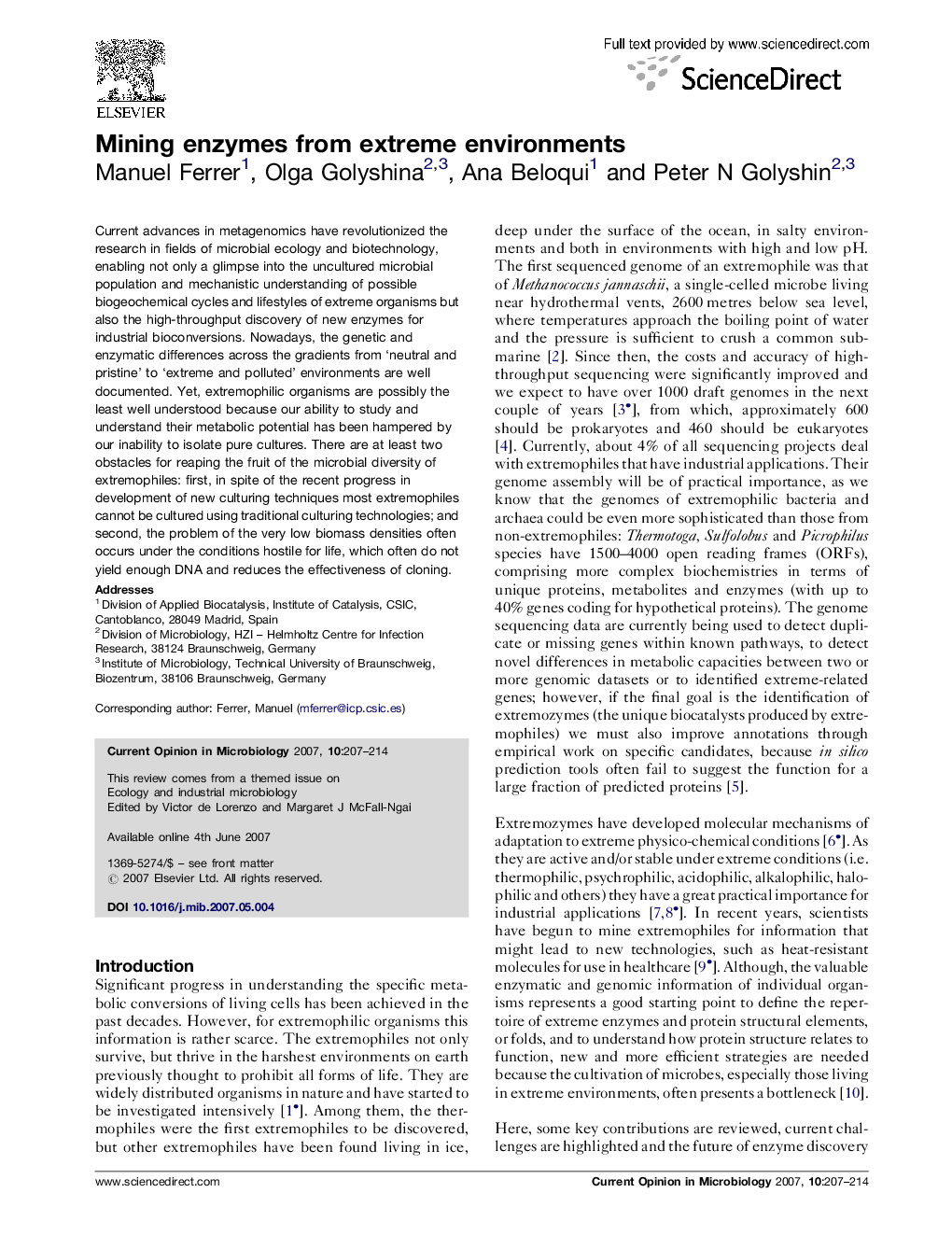| Article ID | Journal | Published Year | Pages | File Type |
|---|---|---|---|---|
| 3399666 | Current Opinion in Microbiology | 2007 | 8 Pages |
Current advances in metagenomics have revolutionized the research in fields of microbial ecology and biotechnology, enabling not only a glimpse into the uncultured microbial population and mechanistic understanding of possible biogeochemical cycles and lifestyles of extreme organisms but also the high-throughput discovery of new enzymes for industrial bioconversions. Nowadays, the genetic and enzymatic differences across the gradients from ‘neutral and pristine’ to ‘extreme and polluted’ environments are well documented. Yet, extremophilic organisms are possibly the least well understood because our ability to study and understand their metabolic potential has been hampered by our inability to isolate pure cultures. There are at least two obstacles for reaping the fruit of the microbial diversity of extremophiles: first, in spite of the recent progress in development of new culturing techniques most extremophiles cannot be cultured using traditional culturing technologies; and second, the problem of the very low biomass densities often occurs under the conditions hostile for life, which often do not yield enough DNA and reduces the effectiveness of cloning.
